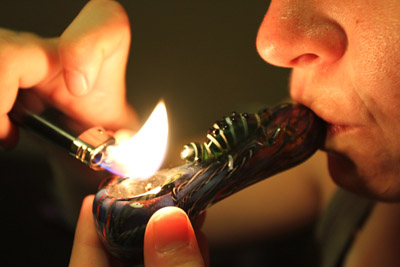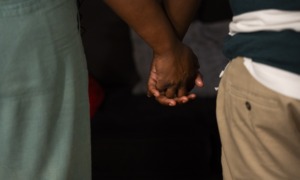Chicago, but it will likely still cost you.
The Chicago City Council voted 44 to 3 today to pass Mayor Rahm Emanuel’s
proposal – which calls for those caught with 15 grams of marijuana or less
to receive tickets and a maximum fine of $500 in place of arrests.
Adolescents under 17, however, still face arrest. Among other goals, this
plan hopes to free police officers to tackle more serious, violent crimes.
Emanuel got final approval at today’s City Council meeting.
 Chicago police, under the new law, can start issuing tickets for pot
Chicago police, under the new law, can start issuing tickets for pot
possession on August 4, roughly two months after the idea first made news here.
The mayor’s call for partial marijuana decriminalization is one more push in a series of state and local campaigns to pass similar legislation. On June 13, Rhode Island’s governor Lincoln Chafee signed the Uniform Controlled Substances Act, making Rhode Island the 14th state to eliminate jail time and instead impose fines for possessing small amounts of marijuana, according to the Marijuana Policy Project. MPP also reports eight other states have considered or are considering similar bills in 2012, including Illinois.
There is growing recognition that the public cost of incarceration and the personal cost of a criminal record outweigh the benefits associated with the formal judicial process for marijuana possession, according to Tracy Velázquez, executive director of the Justice Policy Institute in Washington D.C.
“Marijuana possession is, if anything, a public health issue more than a criminal justice issue,” she said. “We know that, in general, any type of incarceration for youth does more harm than good.”
Velazquez said it is therefore preferable for minors using marijuana to receive treatment through the public health system rather than the criminal justice system.
But Emanuel’s proposal doesn’t eliminate all criminal consequences; adolescents younger than 17 can still be arrested for possessing any amount of marijuana. Two mothers living in Englewood, one of the most crime-ridden neighborhoods on the South Side of Chicago, believe the mayor’s proposal sends kids a negative message.
“If they do weed now, when is it gonna stop?” said Libra McBryant, 40 and a mother of five. “They might get 17-year-olds popping pills, might get 21-year-olds smoking the pipe. That ain’t cool.”
In a neighborhood where drug use has been a noted problem, McBryant said education systems around drug use appear lacking and decriminalizing marijuana possession will further encourage kids to experiment. McBryant said she tried to be a careful parent and keep her sons off the streets. Though her 19-year-old is currently locked up, two sons are in high school and the other two have their high school diplomas.
“If you got somebody out here that will talk to the kids, about not to do this, not to do that, maybe we can get along right,” she said.
Areaun Martin, a mother of two, said many factors shape young people’s perception of drugs. Some kids hang out with gang members significantly older than them, and are easily influenced by their habits, she said.
“It’s who your parents are, and who you’ve been raised around,” said Martin, 32.
Emanuel’s proposal coincides with the release of the CDC’s Youth Risk Behavior Survey earlier this month, which shows more high school students (23 percent) smoked pot than cigarettes (18 percent) within a 30 day period.
Some teenagers in Englewood expressed mixed feelings about their mayor’s proposal. Renee Foster and Shante Pink, 17-year-old students at Tilden Career Community Academy High School, said the proposal is a combination of “good and bad” factors.
While both agreed young people should face the consequences of their actions, Pink said she would be upset if one of her cousins or young relatives received a jail sentence for possessing marijuana. Foster thinks it’s “not fair” to send kids to jail for drug possession.
The proposed fines, according to critics, would only add to the burden of neighborhoods that are already suffering financially.
“It’s a money thing,” McByrant said, shaking her head. “Instead of gangbangers make your money, [government is] making your money.”
Lorraine Ma and Natalie Krebs are reporters for The Chicago Bureau.
Photo by Natalie Krebs of The Chicago Bureau.































